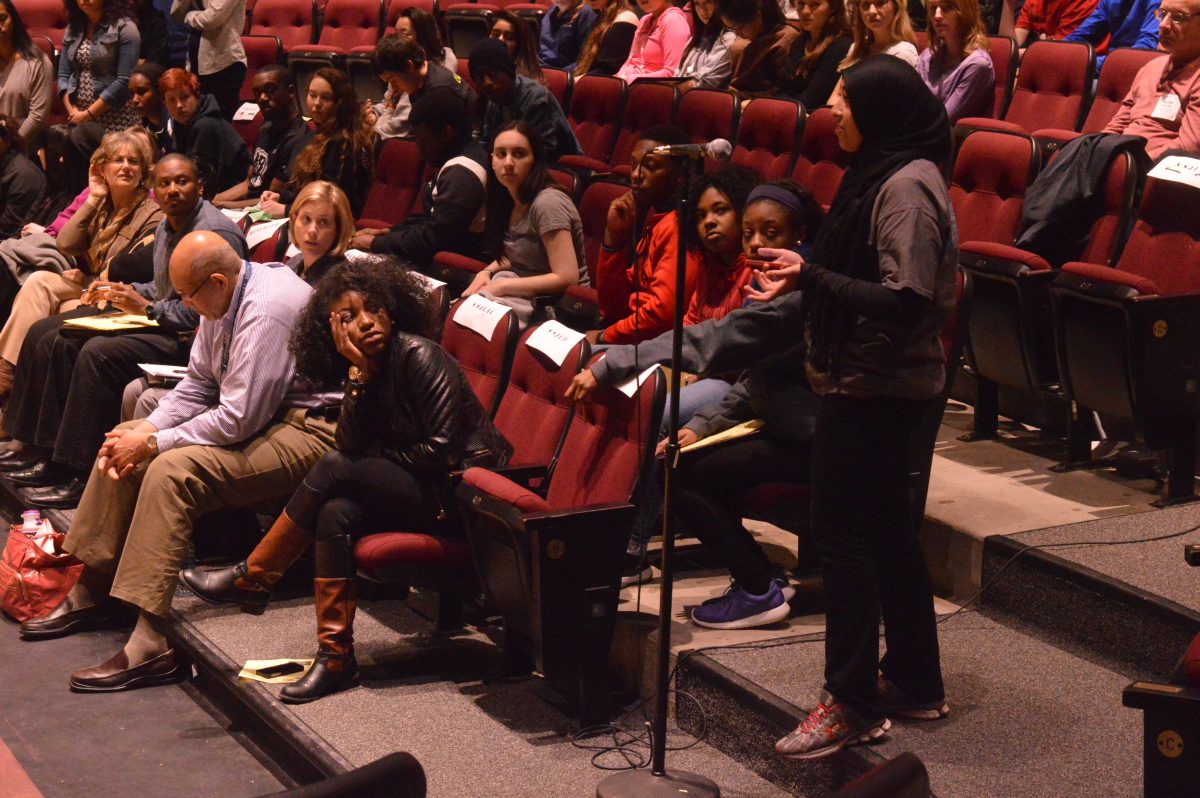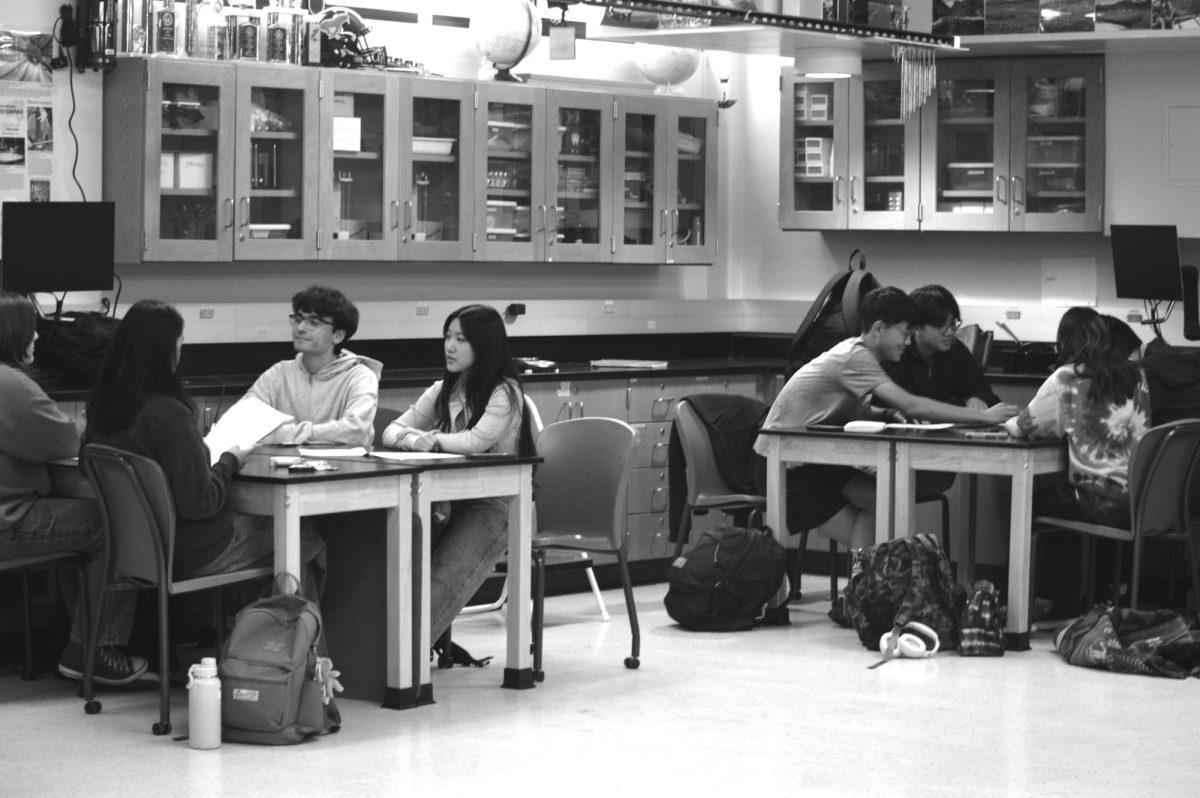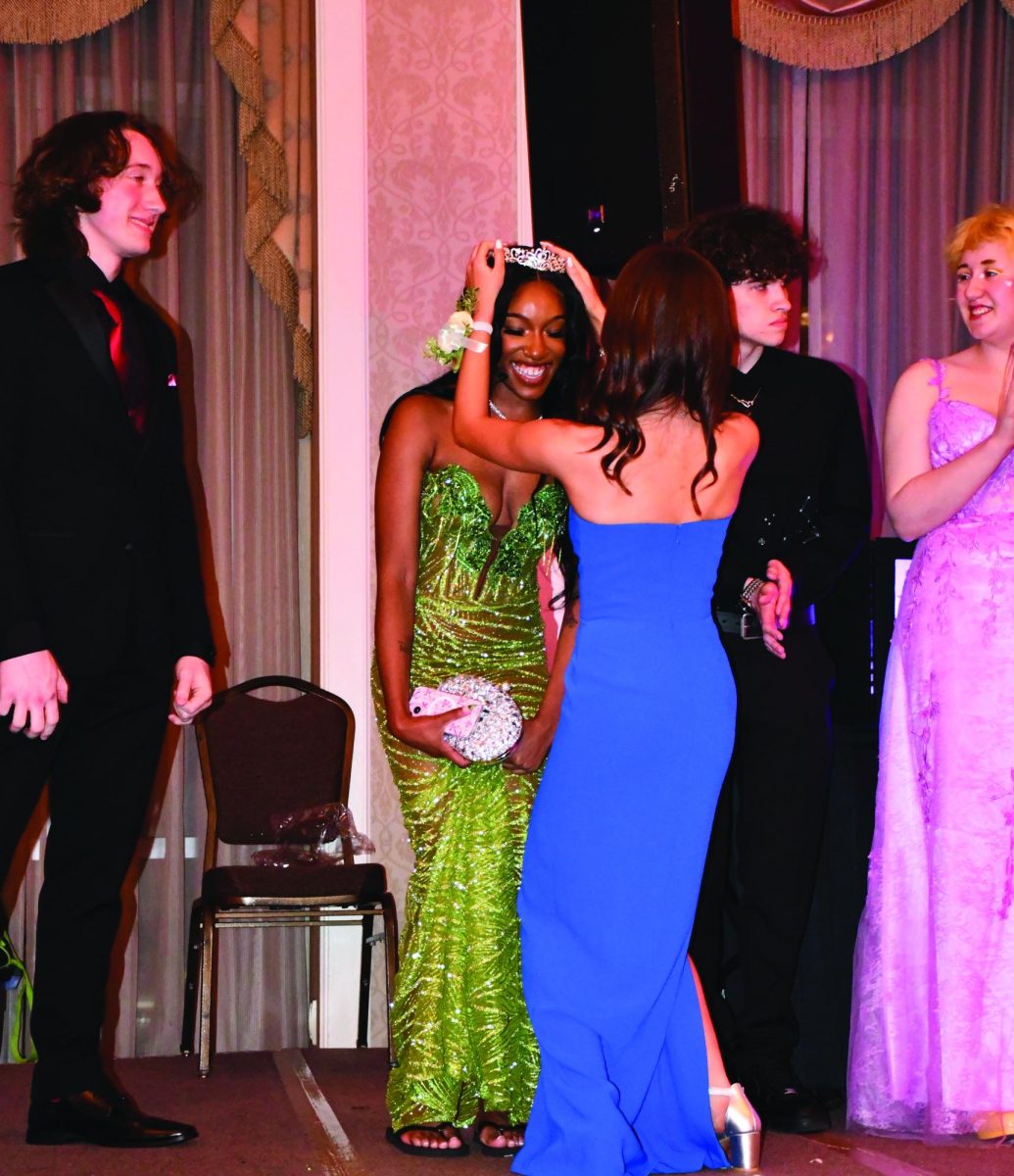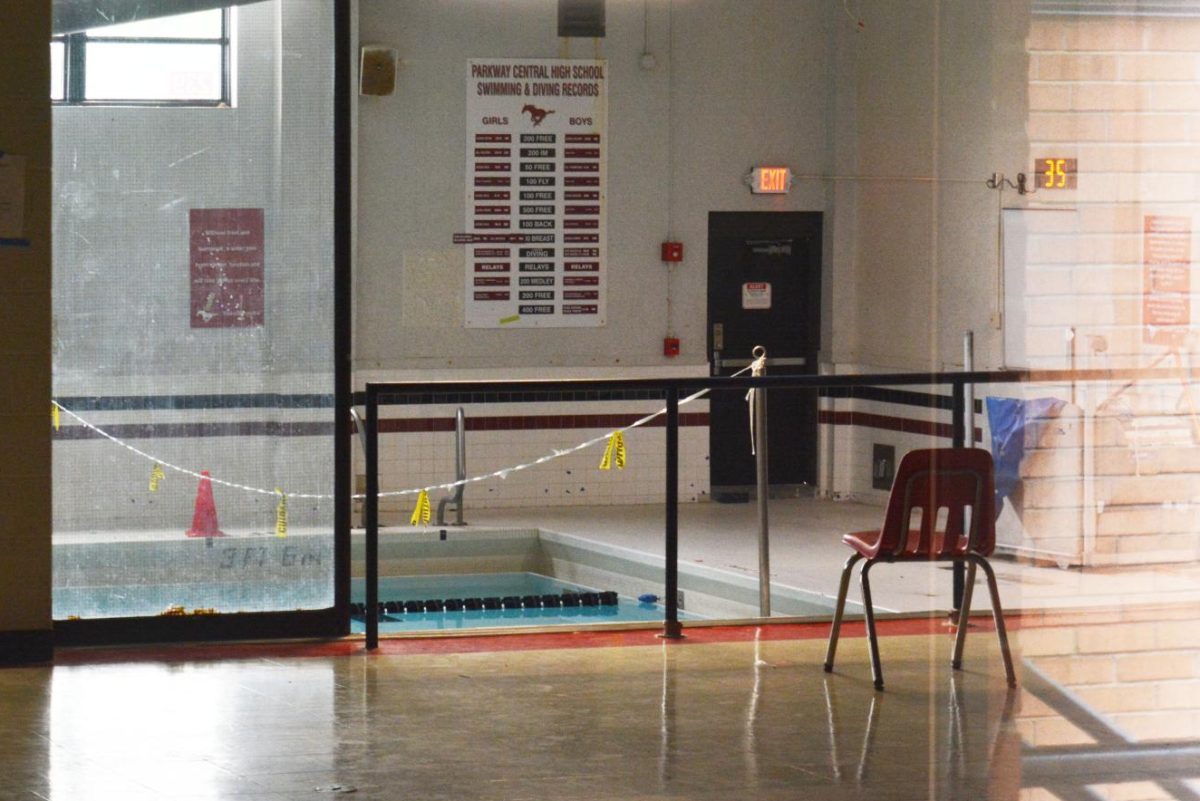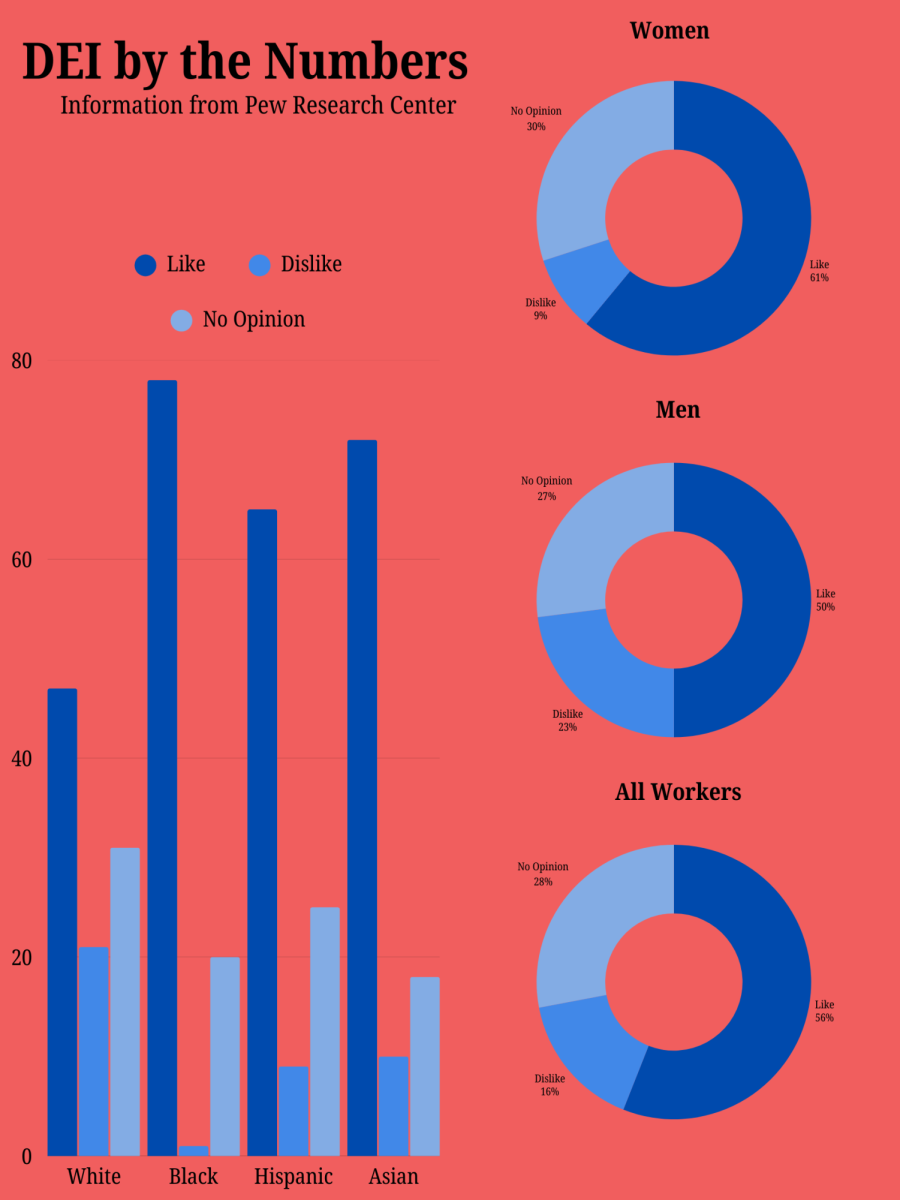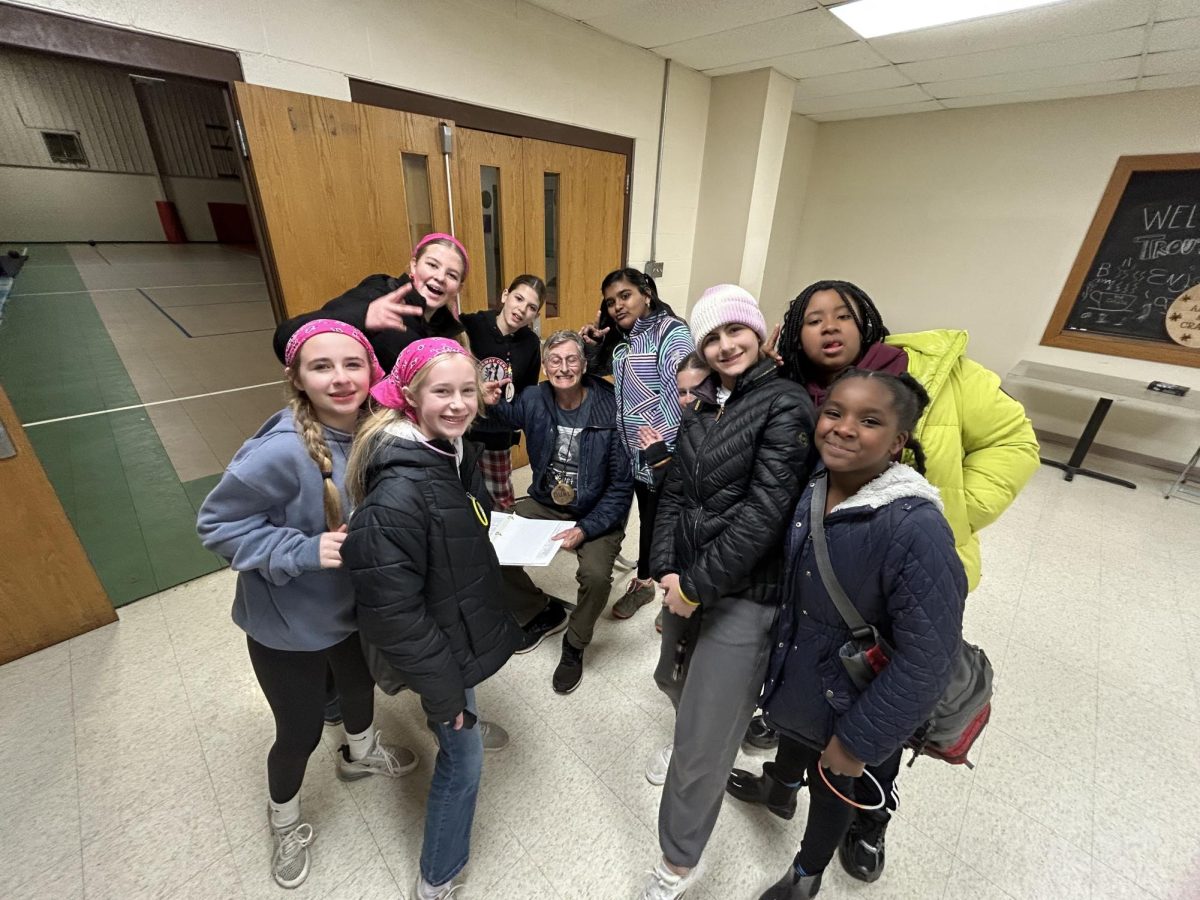Presenting a discussion open to the student body on March 26, four members of the speech and debate team tackled the issue of civil disobedience, focusing on the events in Ferguson.
“Each team spoke with such conviction,” assistant principal Carletta Harlan said. “It was obvious from the rich banter and the responses from the audience with questions during the question and answer portion of the debate that the subject had been thoroughly researched. Every nuance of the debate process was compelling.
The debate, which was presented by the Superintendent’s Social Justice Leadership Advisory Council, sponsored at Central by Harlan, provided attendees with something to reflect on

“The subject of civil disobedience in reference to the recent events in Ferguson, Mo., was timely and enlightening, leaving me with food for thought on the subject,” debate attendee and school nurse Susan Hunt said. “The students did an excellent job presenting their cases.
The debaters were assigned a position and researched both general ideas of civil disobedience and its specific involvement in Ferguson. Sophomores Maddy Scannell and Jennifer Heiman argued for the resolution, which stated civil disobedience in the U.S. is morally justified, while the con side was presented by senior Bharani Kumar and junior Cole Edelstein.
“It was tough because it’s hard to differentiate between trying to make a good argument and not being offensive at the same time,” Kumar said. “But we’re used to debating both sides of the argument whether or not we agree with it. It’s our job to debate it to the best of our ability.”
The format of the debate, which varied from the usual process, started with each side giving a five minute opener to explain their position. Then, each team was cross-questioned by the opponents before refuting the claims offered by the opponents. After repeating this, summaries were presented and the debate ended with questions from the audience and final summaries
“I appreciated Mr. Proffitt bringing the debate to an ‘open’ ending,” Hunt said. “The audience was not charged with picking a winner, but, rather recognizing the differences in opinions of all people and finding common ground to work together for a more just and equal society.
Through the debate, both speech and debate coach Rob Proffitt and Harlan hoped the audience could develop a further understanding of civil disobedience afterwards
“I hope that they can see that when civil disobedience is done correctly, it’s a very vital tool in a democracy,” Proffitt said. “From an education standpoint, that’s what we need to make sure these young people understand, that it’s OK to disagree. But you have to be able to do it in a civil manner to get the change you want to see brought about, no matter what side of the aisle you fall on.”
Along with general goals of understanding from the audience, the debate’s topic of civil disobedience fit with the curriculum of several history and English classes in the building.
“It broadens one’s perspective,” Harlan said. “We say we have critical thinkers. It forces you to think more critically and look inward. And hopefully, decide what little bit I can play to make this a better place.”
The event came to fruition after the debate team found an opening in their schedule in which they could present.
“I had approached Dr. Harlan and we were trying to come up with a way to tell us what they thought,” Proffitt said. “We felt it was something that we needed to allow them to not only talk about, but to show them how it can be used from an educational perspective.”
The event was planned for earlier in the year, but due to scheduling conflicts, couldn’t be scheduled until late March, when it was quickly put together.
“Generally we have weeks to prepare and he was only giving us a couple of days,” Scannell said. “We were a little panicked, but we got it together.”
The presentation opened with short introductions from senior Jade Thomas and principal Tim McCarthy, who spoke to the importance of the public debate.
“As a [former] social studies teacher, I am very excited about today,” McCarthy said. “In the American tradition, it is so important that we understand, engage in and appreciate the importance of civil disobedience and the concept of freedom of speech and all of the manifestations that may take.”
With the discussion of the events in Ferguson came special parameters for the participants.
“It’s a really sensitive issue which is why our coach wanted us to be careful with what we said and how we said it,” Scannell said. “We had to make sure to avoid certain topics and be careful with the ways we phrased things to avoid offending anyone.”

